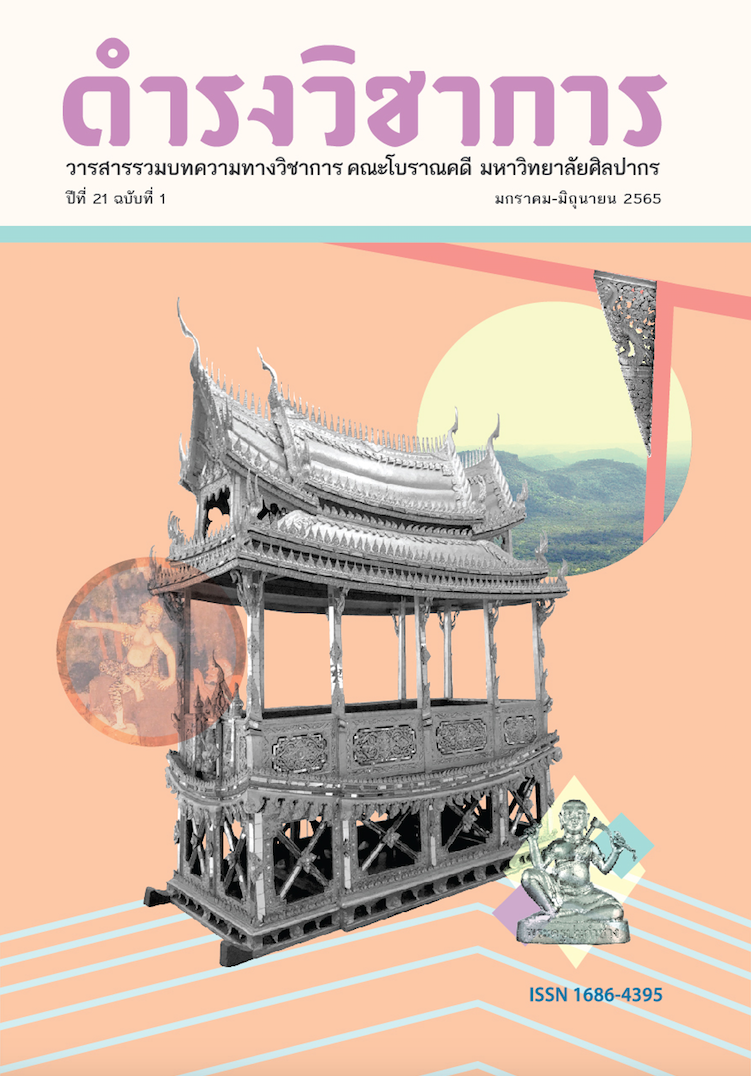Learning and Working of Thai Multinational Corporation Personnel in Myanmar
Keywords:
Learning, learning and working, Thai multinational corporations, MyanmarAbstract
This article aims to analyze learning and working of personnel in Thai multinational corporations investing in Myanmar, and is the result of a research study on the project “Managing Cultural Diversity in the Multinational Corporations: Case Studies of Burmese Labors’ Working Culture in the Thai Companies in Myanmar”. The results of the analysis revealed that learning through working is a means of acquiring knowledge. Experience-based understanding is used to reach the desired outcomes of working effectively. It is a learning culture that has emerged from the usual convention and evolved through different eras to define its meaning. “Modern learning” processes and methods are separated from the old style of learning in the education system, and are a form of learning that produces people ready to work according to the needs of today's society. Learning according to the original definition, or “folk learning,” still exists in some areas, such as Myanmar, where there is too little modern learning management to meet the needs of society. When multinational corporations come to invest, they have to recruit local personnel with local learning to do the work. Some corporations have to prepare plans to promote learning and work for their personnel so that they can continue to operate. But some places don't have such a plan, causing problems for work. For example, it is not possible to deliver technology to the Myanmar people as the corporations have promised with the government. The analysis suggested that in this situation, multinational corporations should focus on traditional learning by organizing educational activities. Knowledge of working partners for personnel in the corporation should be systematic, so that such processes and methods of learning can create learning and working for personnel according to their needs.
References
เนาวรัตน์ พลายน้อย สมศรี ศิริขวัญชัย, (บรรณาธิการ), 2553. ปรารมภ์ว่าด้วยการศึกษาไทย รวมบทความว่าด้วยการศึกษาไทย. กรุงเทพฯ: บริษัทพี.เอ.ลีฟวิ่ง จำกัด.
พระธรรมปิฎก, 2538. วัฒนธรรมไทย: สู่ยุคแห่งการเป็นผู้นำและผู้ให้. พิมพ์ครั้งที่ 4. กรุงเทพฯ: สำนัก งานคณะกรรมการวัฒนธรรมแห่งชาติ.
เรณู เหมือนจันทร์เชย โสภนา ศรีจำปา และเอี่ยม ทองดี, 2559. การจัดการความหลากหลายทางวัฒนธรรมของแรงงานพม่า: กรณีศึกษาวัฒนธรรมการทำงานของแรงงานพม่าในบริษัทไทยในประเทศเมียนมา. นครปฐม: โครงการการจัดการความหลากหลายทางวัฒนธรรมของแรงงานพม่า: กรณีศึกษาวัฒนธรรมการทำงานของแรงงานพม่าในบริษัทไทยในประเทศไทยและในประเทศเมียนมาร์ ภายใต้แผนงานที่ 2 การศึกษาการจัดการความหลากหลายทางวัฒนธรรมในบรรษัทข้ามชาติ (2558-2559), สนับสนุนทุนวิจัยจากเงินงบประมาณแผ่นดิน.
อคิน รพีพัฒน์, 2551. วัฒนธรรมคือความหมาย: ทฤษฎีและวิธีการของคลิฟฟอร์ด เกียร์ซ. กรุงเทพฯ: ศูนย์มานุษยวิทยาสิรินธร (องค์การมหาชน).
Edward Burnett Tylor, 1871, Primitive Culture; Researches into the Development of Mythology, Philosophy, Religion, Art, and Custom. London: J Merray.
Hofstede, G. (2011). Dimensionalizing Cultures: The Hofstede Model in Context. Online Readings in Psychology and Culture, 2(1). https://doi.org/10.9707/2307-0919.1014. Retrieved January 19, 2022, from https://scholarworks.gvsu.edu/cgi/viewcontent. cgi?article=1014&context=orpc.
Google site, 2560. การศึกษาในประเทศเมียนมาร์. ค้นเมื่อ 31 ตุลาคม 2560. จาก https://sites.google. com/site/56006038กันตาลัก/kar-suksa-ni-phma.
Downloads
Published
Issue
Section
License
Copyright (c) 2022 Damrong Journal of The Faculty of Archaeology Silpakorn University

This work is licensed under a Creative Commons Attribution-NonCommercial-NoDerivatives 4.0 International License.
บทความนี้เป็นผลงานของข้าพเจ้าแต่เพียงผู้เดียว และ/หรือเป็นผลงานของข้าพเจ้าและผู้ร่วมงาน ตามชื่อที่ระบุในบทความจริง และเป็นผลงานที่มิได้ถูกนำเสนอหรือตีพิมพ์ที่ใดมาก่อน





